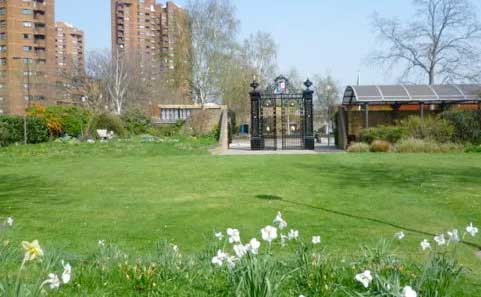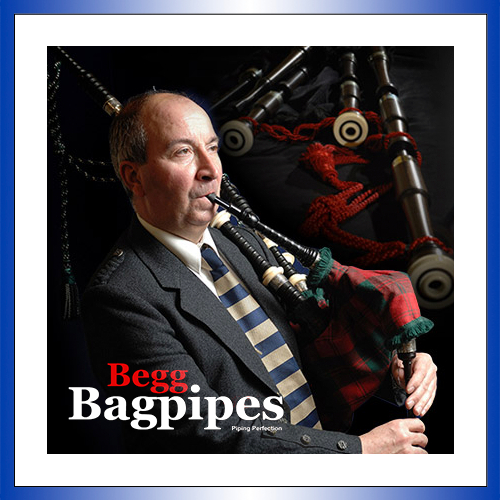By Jeannie Campbell MBE

In June 1855, the Club of True Highlanders held its annual gathering at Blackheath in south east London. In addition to shinty, other games and sports were included and as before there was some piping. One report stated, “… the athletic exertions of a goodly number of kilt glad Gaels, the pealing of the piobaireachd, the tented field, and waving banners, produced a fine effect.”
A Great Scottish Fête at the Royal Gardens in Cremorne, Chelsea, was advertised in August 1856. The event was by now very far removed from the traditional games as can be seen from this advertisement: “Great Scottish Fete, portraying, through the immense resources of the establishment, a variety of Al Fresco entertainments and sports, including Morris Dances, Scotch Reels, Maypole Dances, Feats of Strength, etc. In the theatre will be represented the laughable Divertissement of the Dancing Scotchman – Sandy McGregor, Mr Forrest. On this occasion, in addition to the usual round of attractions, will be produced the burlesque imitations of Perea Nena and the Spanish Dancers; characters by the entire corps de ballet.”
There doesn’t appear to be anything further concerning these ‘Scottish’ fêtes.

The London Scottish Volunteer Rifles came into being on November 2, 1859, with Lord Elcho gazetted as Colonel of the Regiment on February 10, 1860. The Scots Fusilier Guards provided pipers to assist the volunteers of the London Scottish on the march in the early days of the regiment. For example, on May 30, 1860 The Times newspaper reported on a meeting of the London Scottish after which, “Lord Elcho marched four companies to the Regent’s Park, preceded by the pipers of the Scots Fusilier Guards.”
Later that year, around ten members of the corps were “being prepared as bagpipers, so that those who like this Northern symphony (and those who don’t) will hear soon enough of it in the Strand.” In mid-November it was announced that five or six Volunteer pipers were in the course of training under a Pipe Major, who would instruct them, and that a brass band would be provided, which would form the nucleus for the practise of Volunteer bandsmen as they come forward gradually for instruction. The original ten or so members being trained on the pipes had contracted to a nucleus of six. The ‘Pipe Major’ providing the instruction was Piper John MacKenzie of the 2nd Battalion Scots Fusilier Guards and the six original London Scottish pipers under his tuition were “Alexander ‘Sandy’ Campbell, Peter McDonald, Davie Henry, Jim Coutts, Maule Bately and Wood”.
The social events of the Club of True Highlanders continued into 1861. In June 1862 it advertised that in mid-July it would be having a “Grand Highland Gathering” which would include piping and dancing competitions, with good prizes, plus the usual heavy and athletics events. The venue was the grounds of the South Middlesex Volunteers at Beaufort House, Walham Green. One London newspaper report stated: “Prizes varying in amount from £1 to £10 will be given to the best players of pibrochs, reels and strathspeys; the best dancers; for putting the stone, tossing the hammer, running and jumping, and other amusements in which John Highlandman delights. A large attendance is expected, and the sports are under the patronage of the Duke of Argyle, Lord Elcho, Viscount Ranelagh and other distinguished promoters of athletic exercises.” The boys of the Caledonian School played.
The prizes were as follows:
Ceòl Mòr – Donald Cameron.
Marches – A. Cameron.
Strathspey and Reel – 1. Donald Cameron; 2. Private MacKenzie, 78th Regiment. In describing the reel playing one paper reported, “There were numerous competitors, but not one approached the efforts of the noble looking old piper to the Earl of Seaforth, whose appearance and playing attracted universal attraction.”
Donald Cameron (1810-1868) was the older brother of Alexander Cameron. From 1830-43 he was Piper to Sir James Wemyss MacKenzie of Rosehaugh then from 1843-49 to his son, Sir James J R MacKenzie of Scatwell. From 1849-68 he was Col. Keith Stewart MacKenzie, the Earl of Seaforth’s piper. At the Edinburgh competition Donald won the Prize Pipe in 1844 and at the Northern Meeting he won the Prize Pipe in 1843, the Former Winners Gold Medal in 1849, 50, 59 and the Champions Medal for Winners of the Former Winners in 1867.
The concluding prize of the meeting was for the best dressed Highlander, in which competition there were five entries. By the conditions, ornaments were excluded, and the judges had to decide on three points – the make of the dress, the quality of the material, and the truth of the tartan. The winner was Donald Scott. He wore a McNaughton plaid, home spun.

The judges were: Captain Forbes, 78th Highlanders; a Mr Cameron, of Glasgow; a Mr McAllister, piper to the Duke of Sutherland; and a Mr McBain; the two latter being judges of Scottish music and dress.
In the heavy events, Donald Dinnie was the principal prizewinner. Violent rain on both days prevented the attendance from being so numerous as could have been desired. The proceedings each evening concluded with a concert at Beaufort House.
Some of the English newspapers were less than enthusiastic in their reporting. One stated that everyone could understand cricket, or boating or horse racing, but nobody understood caber tossing and events like putting the stone. The report went on to say that the competitors in these events should remember that these are fetes at which ladies are expected to and do attend.
No events were reported for 1863. But in September 1864 the sports at Blackheath were held.
In addition to the shinty matches there was stone putting, caber tossing, dancing etc., ‘enlivened by the stirring salutes and strathspeys of the great pipes.’ Afterwards the members and their friends dined at the Princess of Wales tavern where the usual toasts and sentiments were given. Also in November 1864, “Major John MacLean, late of the 42nd Highlanders, and now Pipe Major to the Club of True Highlanders, gave a solo on the bagpipes” at a concert organised by the Middlesex Rifle Volunteers. John MacLean was the Pipe Major of the 42nd from 1828 till 1852. At this time, while Piper to the Club he was working at the Royal Hospital Chelsea.
In 1865 the sports were held at Wimbledon instead of Blackheath.
Also in July 1865 a Gathering of the Clans and Scotch Fête was staged at the South London Music Hall. From 1866 to 1869 only the Club’s annual balls and the St. Andrew’s dinner were reported in the newspapers.
• Part 1
• Part 2
• Part 3
• Part 4




